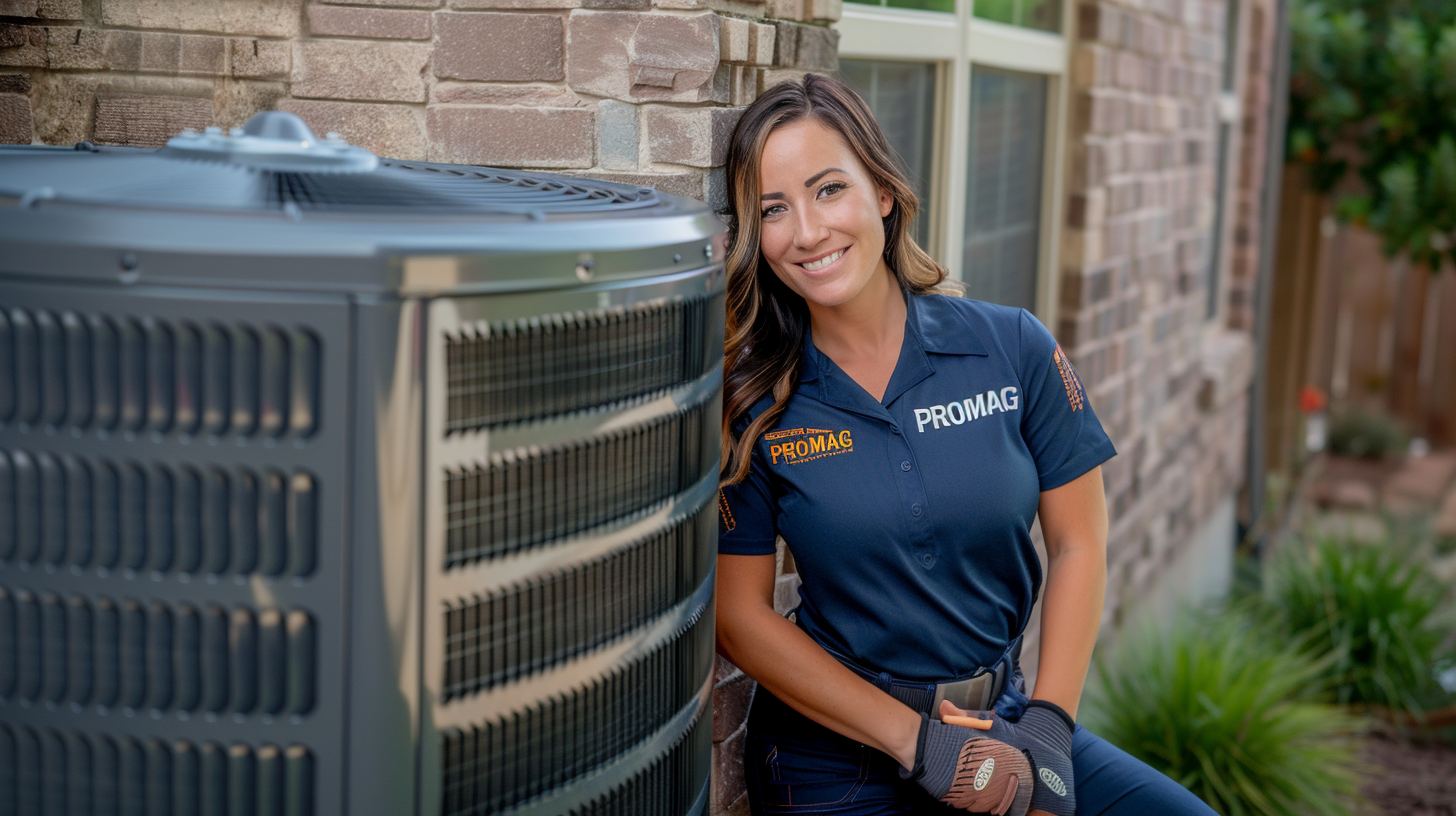Just How to Choose the Right HVAC System for Your Needs
Selecting the suitable Heating and cooling system is a critical decision that requires cautious consideration of various aspects. The myriad of system kinds available can complicate this process, leading one to question which course inevitably leads to optimal comfort and effectiveness.
Analyze Your Home Dimension
Evaluating your home size is a crucial initial step in picking the proper cooling and heating system. The dimension of your home directly influences the heating and cooling ability required for reliable environment control. A heating and cooling system that is as well tiny will struggle to keep comfortable temperatures, resulting in boosted energy consumption and endure the unit. Alternatively, a large system can lead to short biking, poor humidity control, and inefficient procedure.
To properly evaluate your home dimension, gauge the square video footage of each room, considering elements such as ceiling height and the design. Furthermore, take into consideration the insulation quality and the number of home windows, as these elements affect thermal performance. Residences with open layout might require various system arrangements contrasted to those with several split spaces.
Making Use Of the Manual J load calculation technique can provide a more specific price quote of your cooling and heating needs. This technique accounts for different aspects, consisting of local climate, solar gain, and occupancy patterns. By carefully evaluating these elements, you can make sure that your selected heating and cooling system is properly sized, bring about improved convenience, energy efficiency, and long life of the tools.
Determine Your Budget
Establishing your budget is a pivotal action in the cooling and heating system option process, as it establishes the criteria for your options - DMAKS HVAC. A HVAC system is a significant financial investment, and recognizing your economic limits will certainly help limit choices that fit within your ways
Begin by assessing not just the preliminary purchase price however likewise setup prices, which can differ considerably depending on the intricacy of the project. Additionally, think about continuous expenses such as upkeep, repairs, and energy intake. A system might appear economical originally however can result in greater costs gradually if it is less effective.
It is a good idea to assign a backup fund for unforeseen expenditures that may develop during setup or first system changes (DMAKS HVAC). Additionally, discover funding options or rebates that might be offered, as these can reduce the burden of upfront prices
Inevitably, having a clear budget allows you to involve with a/c specialists better, guaranteeing you get customized recommendations that lines up with your monetary objectives and home requirements. By being thorough about your spending plan, you can make enlightened decisions that boost convenience without compromising financial stability.
Evaluate Power Efficiency
Energy efficiency plays a crucial function in the overall efficiency and cost-effectiveness of your HVAC system. When selecting a system, it is vital to consider its energy effectiveness ratings, as these numbers straight affect your utility expenses and environmental footprint. Seek systems with a high Seasonal Power Performance Proportion (SEER) for cooling down and a high Yearly Gas Application Effectiveness (AFUE) rating for heating. Higher scores indicate higher efficiency, implying even more comfort for less energy intake.
Furthermore, take into consideration the Energy Celebrity accreditation, which symbolizes that the system meets rigid performance guidelines established by the Epa. Buying an Energy Star-rated cooling and heating system can result in substantial savings in time, particularly in locations with extreme temperature variations.
An additional element to evaluate is the system's dimension and capacity. An oversized or small system can result in inefficiency and increased power expenses. DMAKS HVAC. Correct sizing, frequently identified via a Hands-on J load calculation, additional hints guarantees that the system runs at ideal efficiency


Consider Climate and Atmosphere
When choosing a HVAC system, it is important to take into consideration the neighborhood climate and environmental problems, as these factors considerably influence the system's efficiency and efficiency. Various areas experience differing temperature level extremes, humidity degrees, and seasonal modifications, every one of which effect heating and cooling demands.

Additionally, regional environmental factors, such as air high quality and possible allergens, must educate your selection. Equipments equipped with sophisticated purification technologies can aid alleviate pollutants and give cleaner air. Furthermore, think about the power resources readily available in your location-- some HVAC systems are more reliable when powered by all-natural gas or renewable resource resources.
Ultimately, aligning your heating and cooling system option with your neighborhood climate and environmental factors to consider will certainly result in boosted convenience, boosted effectiveness, and lower power prices.
Explore System Types and Features
As home owners look for to optimize convenience and efficiency, exploring the different kinds of cooling and heating systems and their one-of-a-kind attributes ends up being necessary. The primary kinds of cooling and heating systems consist of central air, heatpump, ductless mini-split systems, and heating systems. Each system provides distinctive advantages tailored to different demands and preferences.
Air conditioning systems provide uniform air conditioning throughout a home, making them perfect for larger areas. Warmth pumps work as both heating click site and cooling solutions, using electrical power to move warm, which can result in lower energy prices. Ductless mini-split systems are ending up being increasingly preferred because of their adaptability and convenience of installment, allowing home owners to regulate the temperature level in private rooms without substantial ductwork.

Verdict
In conclusion, selecting the appropriate a/c system necessitates mindful factor to consider of different factors, including home size, spending plan constraints, energy performance, neighborhood climate, and offered system types. A detailed evaluation of these aspects guarantees ideal comfort and cost-effectiveness. By complying with a structured approach, property owners can make informed choices that align with their particular requirements and preferences, ultimately bring about enhanced indoor air high quality and power savings.